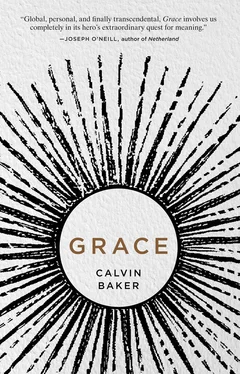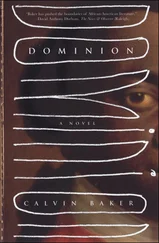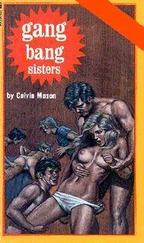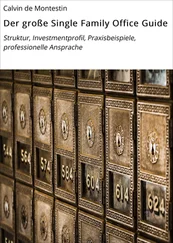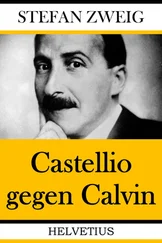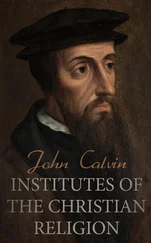“It is pleasant here,” I remarked.
“Well, you must come back one day,” he said. “All the young people have left to find something new. Not knowing that we do not have to seek experience, it finds us whether we desire it to or not.”
When the meat was ready, we ferried it to the dining table on the veranda, where Mrs. Saavardra and Mrs. Maldonado were deep in conversation with the other guests. “ Olé, ” they all exclaimed, when they saw the platter piled high with the steaming meat.
“ Gracias, ” Mr. Saavardra said humbly.
We sat around a large wooden table in the open air, and began to pass bottles, bowls, plates. “Sylvie,” Mrs. Saver, called into the house. “Everything will get cold.”
“ Momentito, ” a cloudless, self-assured voice called from inside the house.
“Don’t wait, Harper,” Mrs. Saavardra insisted. “It is best when it is still hot.”
“I will wait,” I said.
When the door opened a few moments later it was the woman from the launch that afternoon. She was a few years older than she had seemed from afar, with a presence that suggested character, and a guarded watchfulness in her eye.
Mrs. Saavardra had seated us next to each other near the end of the table. She was American, down visiting relatives, but made it clear from the outset she did not care for my attention, which was fine since I was not looking for anything with anyone, but to be myself. After the perfunctory politesse, we barely spoke through the rest of dinner. “I know you don’t offer help to strangers, but do you mind passing the salt?” she asked.
“I was lost in my thoughts.” I did not offer any further explanation, only put myself on guard to let the meal pass without incident. I marked her down as judgmental, the type who thought her experience of things was all of it. She was an attractive woman to make small talk with at a dinner party, nothing more.
We ignored each other for the remainder of the meal except, please pass the salad, thank you , and other conversational bibelots.
Mrs. Saavardra saw we were not getting along, and looked disconcerted. Mr. Saavardra looked at Sylvie and looked at me and looked at his wife and chuckled to himself.
“Tell me,” asked Mrs. Maldonado, to break the tension, “what brought you here.”
“I came by accident, really,” I said.
“There are no such accidents,” she replied. “This place must have called to you for a purpose. How do you spend your days?”
“In recreation,” I said, careful not to betray any more than that.
“Or re-creation,” she replied. “The natives thought all thoughts, and all words, remain in the universe forever. Some points on earth focus the vibrations. These islands were an enchanted gateway to the netherworld and the cosmos, and the center of their place in it. They held their initiation ceremonies on them, because only in such places was full knowledge of, and access to, both worlds possible. They came here to remember their place in the universe and reconcile themselves to it.”
“I never knew that,” Sylvie said.
“Jung said man is indispensable to the completion of creation, is its second creator, giving it objective meaning. It is this consciousness they were tapping, the one that gives us our place in the process of being. So it is exactly when we seem to do nothing that we are really returning to our most primary function, which is to experience our place in existence.”
“It’s a second active principle, activated by the first in the same system,” her husband mused. “The idea of god can only resonate if you believe in god. Naming it presupposes its existence.”
“Maybe,” Mrs. Saavardra added, “or it means what King David meant when he told his people, ‘You are gods.’”
“What is the difference between that and what the rishis teach in the Vedas?” Sylvie asked.
“What do they teach?” I asked.
“That there is full consciousness, then a higher, or deeper, consciousness; beyond that is all of consciousness.”
“That is an interesting construction,” said Mr. Maldonado, who mostly listened and rarely spoke.
“What allows us to construct it? What allows us to figure out the laws of nature? To make music? How strange is it they should be comprehensible, and we are the only animal on the planet the universe has given the ability to puzzle over and understand it.”
“So far as we know.”
“We are simply the universe looking back at itself.”
“Or,” said Mr. Maldonado, “characters in a text someone has written.”
“But isn’t the text just an image, to focus the mind on the idea of god? To bring it home that god makes all things, even his own reflection?”
“I am not a believer.”
“Why don’t you believe?” Sylvie asked.
“When I went to church as a boy—”
“Don’t tell me you let the church get between you and God.”
“Still, you mean an idea.” Mr. Maldonado corrected.
“No. The idea,” Sylvie interjected. Mr. Saavardra gave me a fresh glass, which he filled with a different wine. “Like the feeling you get in Rome when you realize even gods die. Or are consumed. And see the clock of life and the clock of history, and understand that there is another beyond that.”
“I have never been to Rome.” I drank the new wine.
“He means wherever you were the first time you grasped time,” Mrs. Maldonado said.
“Go to Rome.”
“Yes?”
“If only to see how thin are the things we tell ourselves are permanent.”
“He had a girl there he almost married. Tell him about the girl.”
“It did not last. Was is there to say? I was young, headstrong, even careless. She was beguiling as she was proud and reckless. We had a divine affair that burned everything all up. There is nothing remarkable to tell.” His voice was sad with remembered happiness and unbearable knowledge. “When I left I am not ashamed to say I wept. I still do not know whether it was the perfect agony of a divided love, or only the melancholy of leaving Rome.”
“You think there is no difference between their story of god and our own?”
“I think, for the most part, there is only an eternal masculine, an eternal feminine, and a demi-divine human.”
“And you think it is experienced the same by everyone, or are there ten billion ways?”
“What I’m curious to know is whether anyone here has ever had direct experience?”
We all contemplated the question in private silence.
“Have you heard about this new man in America,” Mr. Maldonado asked when no one answered, “who has a theory that all of us, and all of the different ways of being, are just different organs in the same body?”
“I don’t see what’s new about that. Don’t the Buddhists say since forever any path is only a path?”
“Do they include their own in that?”
“Yes.”
“That is honest of them.”
“Do you have to follow a known path, or is it permissible to create your own?”
“Even if we follow a known path, aren’t the steps we make our own?”
“I’m not that advanced yet.”
We had a lively debate, and I was impressed by their learnedness, and the seriousness with which they took their inner lives, and the inner life of their society, as we talked under the stars until the embers faded and the bugs on the patio grew too fierce.
As we began to move inside I was overcome with drowsiness and made motions to leave. My days started with the sun; they were all still on city time. They were adamant I remain, though, to keep even numbers as we split into teams to play a card game, and later, charades with the names of movies, which was difficult since I did not know the local films, and also because some names were completely different in translation.
Читать дальше
